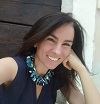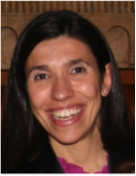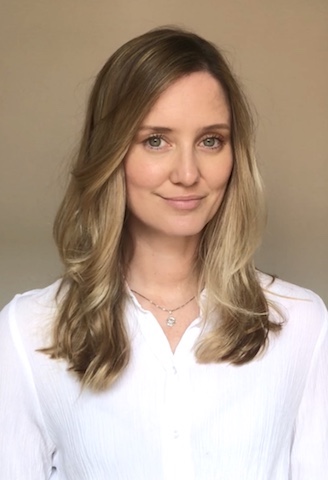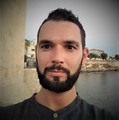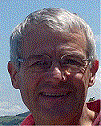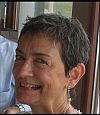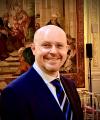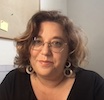Studying at the University of Verona
Here you can find information on the organisational aspects of the Programme, lecture timetables, learning activities and useful contact details for your time at the University, from enrolment to graduation.
Academic calendar
The academic calendar shows the deadlines and scheduled events that are relevant to students, teaching and technical-administrative staff of the University. Public holidays and University closures are also indicated. The academic year normally begins on 1 October each year and ends on 30 September of the following year.
Course calendar
The Academic Calendar sets out the degree programme lecture and exam timetables, as well as the relevant university closure dates..
| Period | From | To |
|---|---|---|
| Sem. IA | Sep 25, 2017 | Oct 28, 2017 |
| Sem. IB | Nov 13, 2017 | Dec 16, 2017 |
| Sem. IIA | Feb 26, 2018 | Apr 7, 2018 |
| Sem. IIB | Apr 23, 2018 | May 30, 2018 |
| Session | From | To |
|---|---|---|
| Sessione Invernale | Jan 22, 2018 | Feb 23, 2018 |
| Sessione Estiva | Jun 11, 2018 | Jul 20, 2018 |
| Sessione Autunnale | Aug 20, 2018 | Sep 21, 2018 |
| Period | From | To |
|---|---|---|
| All Saints Day | Nov 1, 2017 | Nov 1, 2017 |
| Immaculate Conception | Dec 8, 2017 | Dec 8, 2017 |
| Christmas break | Dec 22, 2017 | Jan 7, 2018 |
| Easter break | Mar 30, 2018 | Apr 3, 2018 |
| Liberation Day | Apr 25, 2018 | Apr 25, 2018 |
| Labour Day | May 1, 2018 | May 1, 2018 |
| Patron Saint Day | May 21, 2018 | May 21, 2018 |
| Republic Day | Jun 2, 2018 | Jun 2, 2018 |
| Summer break | Aug 13, 2018 | Aug 18, 2018 |
| Description | Period | From | To |
|---|---|---|---|
| prima parte del primo semestre | Lab. IA | Oct 30, 2017 | Nov 11, 2017 |
| seconda parte del primo semestre | Lab. IB | Jan 8, 2018 | Jan 20, 2018 |
| prima parte del secondo semestre | Lab. IIA | Apr 9, 2018 | Apr 21, 2018 |
| seconda parte del secondo semestre | Lab. IIB | May 31, 2018 | Jun 9, 2018 |
Exam calendar
Exam dates and rounds are managed by the relevant Humanistic Studies Teaching and Student Services Unit.
To view all the exam sessions available, please use the Exam dashboard on ESSE3.
If you forgot your login details or have problems logging in, please contact the relevant IT HelpDesk, or check the login details recovery web page.
Should you have any doubts or questions, please check the Enrollment FAQs
Academic staff
 monica.antonello@univr.it
monica.antonello@univr.it
 3409616648
3409616648
 giacomo.bozzo@univr.it
giacomo.bozzo@univr.it
 paolamaria.caleffi@univr.it
paolamaria.caleffi@univr.it
 simona.carta@univr.it
simona.carta@univr.it
 gilberto.ferraro@unipd.it
gilberto.ferraro@unipd.it
Ganzerla Luca Giovanni Michelangelo
 lucagiovanni.ganzerla@univr.it
lucagiovanni.ganzerla@univr.it
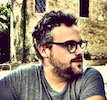
Ghirotto Luca
 luca.ghirotto@univr.it
luca.ghirotto@univr.it
 licia.landi@univr.it
licia.landi@univr.it
 giuseppe.longo@univr.it
giuseppe.longo@univr.it
 beatrice.melodiafesta@univr.it
beatrice.melodiafesta@univr.it
 anja.meyer@univr.it
anja.meyer@univr.it

Migliorati Lorenzo
 lorenzo.migliorati@univr.it
lorenzo.migliorati@univr.it
 045802 8135
045802 8135
 maria.mori@univr.it
maria.mori@univr.it
 paolo.nitti@univr.it
paolo.nitti@univr.it
 michele.picotti@univr.it
michele.picotti@univr.it
 stefania.pontrandolfo@univr.it
stefania.pontrandolfo@univr.it
 cristina.richieri@univr.it
cristina.richieri@univr.it
 lucasimone.rizzo@univr.it / lucasimone.rizzo@unipd.it
lucasimone.rizzo@univr.it / lucasimone.rizzo@unipd.it
 paola.schiano@univr.it
paola.schiano@univr.it
 federica.zantedeschi@univr.it
federica.zantedeschi@univr.it
Study Plan
The Study Plan includes all modules, teaching and learning activities that each student will need to undertake during their time at the University.
Please select your Study Plan based on your enrollment year.
1° Year
| Modules | Credits | TAF | SSD |
|---|
2° Year activated in the A.Y. 2018/2019
| Modules | Credits | TAF | SSD |
|---|
3° Year activated in the A.Y. 2019/2020
| Modules | Credits | TAF | SSD |
|---|
4° Year activated in the A.Y. 2020/2021
| Modules | Credits | TAF | SSD |
|---|
English laboratory 4th year
5° Year activated in the A.Y. 2021/2022
| Modules | Credits | TAF | SSD |
|---|
English laboratory 5th year
| Modules | Credits | TAF | SSD |
|---|
| Modules | Credits | TAF | SSD |
|---|
| Modules | Credits | TAF | SSD |
|---|
| Modules | Credits | TAF | SSD |
|---|
English laboratory 4th year
| Modules | Credits | TAF | SSD |
|---|
English laboratory 5th year
| Modules | Credits | TAF | SSD |
|---|
Legend | Type of training activity (TTA)
TAF (Type of Educational Activity) All courses and activities are classified into different types of educational activities, indicated by a letter.
Children's Literature (2019/2020)
Teaching code
4S00989
Credits
9
Language
Italian
Scientific Disciplinary Sector (SSD)
M-PED/02 - HISTORY OF PEDAGOGY AND EDUCATION
The teaching is organized as follows:
Lezioni
Laboratorio [Gruppo 1]
Laboratorio [Gruppo 2]
Laboratorio [Gruppo 3]
Laboratorio [Gruppo 4]
Learning outcomes
The course includes two equally distributed parts.
The first part deals with Children’s Literature. The purpose is to create a deep and scientifically based knowledge of: Children’s Literature and its main features; a selection of fundamental books and authors; formal and content features of picturebooks, illustrated books, novels, fairy tales and poems; the editorial production for toddlers, children and adolescents.
The second part of the course deals with Pedagogy of reading, with a continuous and circular link between theory and practice. The lessons focus on reading promotion as a means for creating motivated and critical readers through specific methodologies and an accurate theoretical framework. The purpose of the course is to promote the knowledge of: the reading crisis in Italy; children’s needs and the metamorphosis of the reader in the Digital Era; the shortcomings of the most widespread reading promotion activities; the features of high quality reading promotion aimed at creating motivated and critical readers (from the age of 3 to 10/11); the act of reading, the pleasure of reading and the motivation to read; methods and strategies for an effective reading promotion (including activities such as, for instance, read-aloud techniques and literary games).
Program
The course includes two parts.
The first part deals with Children’s Literature and the topics are: definitions, features (style, topics, characters), historical evolution and new educational functions of Children’s Literature; a selection of fundamental books (“Pinocchio”, fairytales,…) and authors (Collodi, Lindgren, Dahl, Munari, Ungerer, Milani, Morpurgo…) of the past and of the present; opportunities and threats of different editorial products.
The second part deals with Pedagogy of reading and aims at creating motivated and critical readers through the best Children’s Literature. The topics are: the reading crisis in Italy, in the contemporary multimodal society and in the Digital Era; the metamorphosis of the reader and the new reading needs of children and young adults; problematic aspects of reading promotion projects inside and outside the school environment in Italy; a new promotion paradigm: literacy promotion purposes, features, and phases through the best Children’s books; literacy promotion methods and strategies to achieve motivation and critical reading; analytical methods and strategies for the selection of the most suitable books and media (picturebooks, fairy tales, novels and poems) destined to different age groups (pre-school and primary school).
Bibliography
| Activity | Author | Title | Publishing house | Year | ISBN | Notes |
|---|---|---|---|---|---|---|
| Lezioni | Blezza Picherle, Silvia | Formare lettori, promuovere la lettura. Riflessioni e itinerari narrativi tra territorio e scuola (nuova edizione) | Franco Angeli | 2015 | L'edizione di riferimento è quella del 2015 che, rispetto alle precedenti, ha subito integrazioni e modifiche anche sostanziali. | |
| Lezioni | Rodari, Gianni | La grammatica della fantasia | Einaudi | 1974 | Sono numerose le edizioni e riedizioni di questo piccolo volume operativo di Gianni Rodari. Sono tutte valide. Consiglio: leggete con attenzione il colophon per valutare se l'edizione ha subito tagli, adattamenti o manipolazioni. Nel caso quell'edizione la scartate. | |
| Lezioni | Blezza Picherle, Silvia | Letteratura per l'infanzia e l'adolescenza. Una narrativa per crescere e formarsi | Quiedit | 2020 | Il riferimento per l'esame è solo ed esclusivamente l'edizione del 2019 che, rispetto alle due precedenti, ha subito sostanziali modifiche, cambiamenti, ampliamenti e integrazioni. | |
| Lezioni | Carminati, Chiara | Perlaparola. Bambini e ragazzi nelle stanze della poesia | Equilibri | 2011 | Durante il Corso il docente valuterà se integrare e completare questo volume operativo con la poesia con un altro volume della stessa autrice di recente pubblicazione/ristampa. | |
| Laboratorio | Blezza Picherle, Silvia | Formare lettori, promuovere la lettura. Riflessioni e itinerari narrativi tra territorio e scuola (nuova edizione) | Franco Angeli | 2015 | ||
| Laboratorio | Rodari, Gianni | La grammatica della fantasia | Einaudi | 1974 | ||
| Laboratorio | Blezza Picherle, Silvia | Letteratura per l'infanzia e l'adolescenza. Una narrativa per crescere e formarsi | Quiedit | 2020 | ||
| Laboratorio | Carminati, Chiara | Perlaparola. Bambini e ragazzi nelle stanze della poesia | Equilibri | 2011 | ||
| Laboratorio | Blezza Picherle, Silvia | Formare lettori, promuovere la lettura. Riflessioni e itinerari narrativi tra territorio e scuola (nuova edizione) | Franco Angeli | 2015 | L'edizione di riferimento è quella del 2015 che, rispetto alle precedenti, ha subito integrazioni e modifiche anche sostanziali. | |
| Laboratorio | Rodari, Gianni | La grammatica della fantasia | Einaudi | 1974 | Sono numerose le edizioni e riedizioni di questo piccolo volume operativo di Gianni Rodari. Sono tutte valide. Consiglio: leggete con attenzione il colophon per valutare se l'edizione ha subito tagli, adattamenti o manipolazioni. Nel caso quell'edizione la scartate. | |
| Laboratorio | Blezza Picherle, Silvia | Letteratura per l'infanzia e l'adolescenza. Una narrativa per crescere e formarsi | Quiedit | 2020 | Il riferimento per l'esame è solo ed esclusivamente l'edizione del 2019 che, rispetto alle due precedenti, ha subito sostanziali modifiche, cambiamenti, ampliamenti e integrazioni. | |
| Laboratorio | Carminati, Chiara | Perlaparola. Bambini e ragazzi nelle stanze della poesia | Equilibri | 2011 | Durante il Corso il docente valuterà se integrare e completare questo volume operativo con la poesia con un altro volume della stessa autrice di recente pubblicazione/ristampa. |
Examination Methods
The exam consists of a two-hour written test with a mix of multiple choice questions; semi-open and open questions. Each student is also expected to produce a short report about a book (chosen from a selection provided by the professor), based on the criteria and techniques discussed during the course.
The present programme is valid for one academic year 2018/2019, i.e. until February 2019.
There is no difference between attending and distance-learning students, but attendance is strongly recommended, whenever possible, so that students may experience and contribute to the workshop-based teaching.
Type D and Type F activities
Modules not yet included
Career prospects
Module/Programme news
News for students
There you will find information, resources and services useful during your time at the University (Student’s exam record, your study plan on ESSE3, Distance Learning courses, university email account, office forms, administrative procedures, etc.). You can log into MyUnivr with your GIA login details: only in this way will you be able to receive notification of all the notices from your teachers and your secretariat via email and soon also via the Univr app.
Stage e Tirocini
Le attività di tirocinio indirette e dirette, per complessive 600 ore pari a 24 crediti formativi universitari, come stabilito dal D.M. 249/2010, hanno inizio nel secondo anno di corso e si svolgono secondo modalità tali da assicurare un aumento progressivo del numero dei relativi crediti formativi universitari fino all'ultimo anno.La struttura generale del tirocinio prevede:
- II annualità 100 ore di tirocinio pari a 4 CFU
- III annualità 100 ore di tirocinio pari a 4 CFU
- IV annualità 175 ore di tirocinio pari a 7 CFU
- V annualità 225 ore di tirocinio pari a 9 CFU.
Il tirocinio è seguito da insegnanti tutor coordinatori e da tutor organizzatori distaccati, rispettivamente a tempo parziale e a tempo pieno, presso il CdS. Esso prevede attività che si sviluppano secondo modalità di partecipazione periferica e modalità di partecipazione attiva: tali attività dovranno essere, adeguatamente documentate da parte dello studente e saranno supervisionate dai tutor competenti.
La frequenza alle attività di tirocinio è obbligatoria.
Documents
| Title | Info File |
|---|---|
|
|
pdf, it, 115 KB, 23/06/21 |
Progetto Dinamo corsi di formazione continua
I corsi del Progetto Dinamo sono una proposta di formazione continua per i/le docenti della scuola dell'infanzia e primaria in servizio elaborata dal Corso di Studi in Scienze della Formazione Primaria dell'Università di Verona.
La loro frequenza, in numero limitato, è aperta anche agli studenti di Scienze della formazione primaria.
L'iscrizione non comporta oneri per gli studenti.
Per i corsi di 8 ore sarà riconosciuto 1 CFU nei crediti liberi; per quelli di 16 ore i crediti liberi riconosciuti saranno 2.
Le modalità di iscrizione saranno comunicate e gestite tramite i rappresentanti degli studenti.
Documents
| Title | Info File |
|---|---|
|
|
pdf, it, 198 KB, 29/08/22 |
Gestione carriere
Linguistic training CLA
Practical information for students
Documents
| Title | Info File |
|---|---|
|
|
pdf, it, 325 KB, 02/05/23 |
|
|
pdf, it, 212 KB, 02/05/23 |
|
|
pdf, it, 131 KB, 02/05/23 |
Student mentoring
Student login and resources
Graduation
Documents
| Title | Info File |
|---|---|
|
|
pdf, it, 434 KB, 07/02/24 |
|
|
pdf, it, 418 KB, 30/11/23 |
|
|
pdf, it, 131 KB, 19/03/24 |
eTwinning
Il Corso di SFP di Verona fa parte del Gruppo Europeo per la formazione eTwinning per i futuri insegnanti – Initial Teacher Education (ITE). Seminari di presentazione della piattaforma e delle sue potenzialità, introduzione alla comunità e/o laboratori sull’uso della stessa sono proposti annualmente come parte integrante dei Laboratori di Lingua Inglese per la Professionalità Docente, e quindi come parte dell’offerta formativa; per il II anno anche con attività progettuale in lingua inglese, studente-studente o a piccoli gruppi.
Per il I anno, a partire dall’ A.A. 2017/2018 è stato realizzato con il supporto dell’USR Veneto e la collaborazione delle ambasciatrici eTwinning un incontro seminariale di presentazione della comunità e piattaforma eTwinning, come parte del Laboratorio di Lingua Inglese per la Professionalità docente. Gli studenti svolgono attività di ricerca e reperimento materiale nel portale eTwinning, studiano alcuni progetti considerati “buone pratiche” e si confrontano con una breve attività in piccolo gruppo sui primi passi di introduzione e orientamento ad un progetto eTwinning. Solitamente sono coinvolti circa un centinaio di studenti.
Per il II anno, a partire dall’A.A. 2020/2021, è stato introdotto un Laboratorio eTwinning (12 ore – 1CFU) di progettualità didattica in lingua inglese. Gli studenti svolgono attività individuali all’interno della Comunità volte a costruire una rete di partner e cogliere ogni potenzialità offerta dalla piattaforma. Inoltre, viene proposta una simulazione progettuale, in piccoli gruppi, dall’introduzione dei partner alla valutazione e disseminazione dei risultati di un progetto eTwinning. Solitamente partecipano circa un centinaio di studenti. Al termine del modulo è richiesto un portfolio digitale in lingua inglese. I futuri docenti esercitano contemporaneamente competenze linguistiche, digitali e sociali facilmente riutilizzabili nella professione futura.
Per il V anno, a partire dal AA 2022/2023, è stato introdotto, all'interno del Laboratorio di Lingua Inglese, un Laboratorio eTwinning di progettualità didattica con un altro ITE (12 ore – 1CFU).
Nell'a.a. 2022/2023 è stata attivata e realizzata una collaborazione con SFP - Università di Cagliari.
Nell'a.a. 2023/2024 si è attivata una collaborazione con l'Università di Castilla-La Mancha (Spagna).
Le attività realizzate sono state presentate durante il Coordinamento Nazionale eTwinning ITE
- a Firenze il 17 e 18 marzo 2022
- e a Lecce il 15 e 16 maggio 2023





